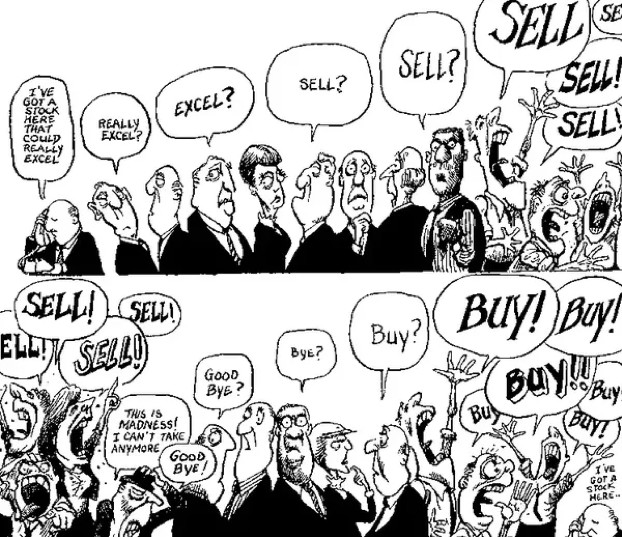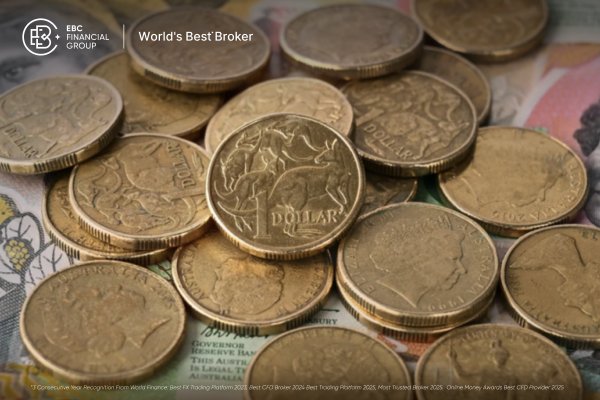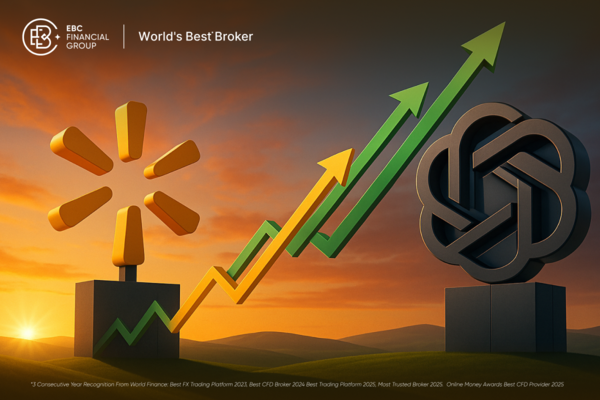Emotions can run high in investing and trading. When the crowd moves in one direction, individuals tend to follow suit. This psychological phenomenon is known as herd mentality, and it plays a significant role in shaping the behaviour of financial markets.
From speculative bubbles to market crashes, herd behaviour has influenced some of the most significant events in financial history. But what exactly is herd mentality, why do investors fall prey to it, and how can it be managed?
In this comprehensive guide, we'll explore the concept of herd mentality in depth, including its causes, examples, impact on market dynamics, and strategies to counteract its effects.
Understanding Herd Mentality in Finance

Herd mentality, also known as herd behaviour or mob mentality, refers to individuals' tendency to mimic the actions of a larger group—often without independent analysis or rational thought.
In finance, it means investors buy or sell assets simply because others are doing it rather than based on fundamental analysis or individual strategy.
Psychological Drivers Behind Herd Behavior
Several psychological factors contribute to herd mentality:
fear of missing out (FOMO): Investors may rush to buy assets experiencing rapid price increases to avoid missing potential gains.
Social Proof: The belief that if many people are investing in a particular asset, it must be a good decision.
Information Cascades: Individuals make decisions based on the observations of others, assuming those actions are informed.
Confirmation Bias: Seeking information that confirms existing beliefs, leading to reinforcement of group behaviour.
These factors can override rational analysis, leading to collective behaviours that may not align with fundamental valuations.
Herd Behavior vs Rational Investing
| Aspect |
Herd Behavior |
Rational Investing |
| Driven by |
Emotion, crowd influence |
Data, analysis, discipline |
| Decision-making |
Reactive and impulsive |
Proactive and strategic |
| Time horizon |
Short-term |
Long-term |
| Risk management |
Often ignored |
Carefully planned |
| Common outcome |
Buy high, sell low |
Buy low, sell high |
Herd Mentality on Different Markets

1. Forex Market
In the foreign exchange (forex) market, herd mentality can trigger large-scale currency movements based on speculation rather than fundamentals.
Market Reactions to News: When a central bank suggests changes to interest rates or releases economic data, traders may rush to buy or sell a currency, even if the action isn't backed by long-term fundamentals. Once large institutions or popular analysts signal a trade, others quickly follow, reinforcing the trend.
Speculative Bubbles: If traders see a currency strengthening, they may buy simply because others are hoping to profit from the momentum. This mass behaviour can push currencies to unsustainable levels, setting the stage for sharp corrections.
-
Stop-loss Cascades: A crowd selling a currency may trigger multiple stop-loss orders, intensifying price drops due to automated trades based on herd movement rather than logic.
2. Commodity Market
In commodity markets (like gold, oil, or agricultural goods), herd mentality amplifies price swings and often ignores real supply-demand dynamics.
Fear and Greed Cycles: Commodities are sensitive to geopolitical events, inflation expectations, and economic outlooks. A panic about oil supply, for example, can lead many traders to buy oil futures, rapidly increasing prices—even if the actual supply hasn't changed yet. Others follow out of fear of missing out (FOMO), escalating prices.
Safe-Haven Herding: During global uncertainty, many investors rush into safe-haven commodities like gold. This herd behaviour often pushes gold prices sharply, even when the underlying economic indicators don't fully support the surge.
Crowded Trades: When everyone bets on the same commodity direction, the market overcrowds. When sentiment shifts, prices can reverse violently as the herd rushes to exit.
3. stock market
The stock market is one of the clearest areas for observing herd mentality.
Market Rallies and Crashes: Bull and bear markets are often fueled by herd behaviour. In bull markets, rising Stock Prices attract more buyers, regardless of valuations. As for bear markets, panic selling drives prices down as everyone rushes to exit.
Meme Stocks and FOMO: A modern example is the GameStop (GME) rally in 2021, where a massive group of retail investors coordinated via Reddit. The collective buying overwhelmed traditional metrics, showing how herd behaviour—driven by social proof and emotion—can create abnormal price spikes.
Earnings and Guidance Overreactions: If a major stock misses earnings expectations, the herd may sell off the stock rapidly—even if the long-term fundamentals remain strong. The fear of losses spreads quickly and reinforces itself.
Historical Examples
1) The Dot-Com Bubble (Late 1990s – Early 2000s)
During the late 1990s, investors heavily invested in internet-based companies, driving stock prices to unsustainable levels despite many companies lacking solid business models. The eventual market correction led to significant losses.
2) The 2008 Financial Crisis
Before the 2008 crisis, there was a widespread belief that housing prices would continue to rise indefinitely. This belief led to excessive borrowing and investment in mortgage-backed securities. When the housing market collapsed, it triggered a global financial crisis.
3) The GameStop Short Squeeze (2021)
In early 2021, retail investors coordinated via online forums to buy shares of GameStop, leading to a massive short squeeze. This event showcased how herd behaviour, amplified by social media, can significantly impact stock prices.
Strategies to Mitigate Herd Mentality

To avoid the pitfalls of herd behaviour, investors can adopt the following strategies:
Independent Analysis: Base investment decisions on thorough research and fundamental analysis rather than market trends.
Diversification: Spread investments across various asset classes to reduce exposure to any single market movement.
Long-Term Perspective: Focus on long-term investment goals rather than short-term market fluctuations.
Awareness of Biases: Recognize personal biases and how they may influence investment decisions.
Consult Financial Advisors: Seek professional advice to gain objective perspectives on investment choices.
Implementing these strategies can help investors make more rational decisions and avoid the adverse effects of herd mentality.
Conclusion
In conclusion, herd mentality plays a significant role in financial markets, often leading to irrational investment behaviours and market inefficiencies.
By understanding the psychological underpinnings of herding and implementing strategies to counteract its influence, investors can make more informed decisions and contribute to more stable financial markets.
Disclaimer: This material is for general information purposes only and is not intended as (and should not be considered to be) financial, investment or other advice on which reliance should be placed. No opinion given in the material constitutes a recommendation by EBC or the author that any particular investment, security, transaction or investment strategy is suitable for any specific person.
























